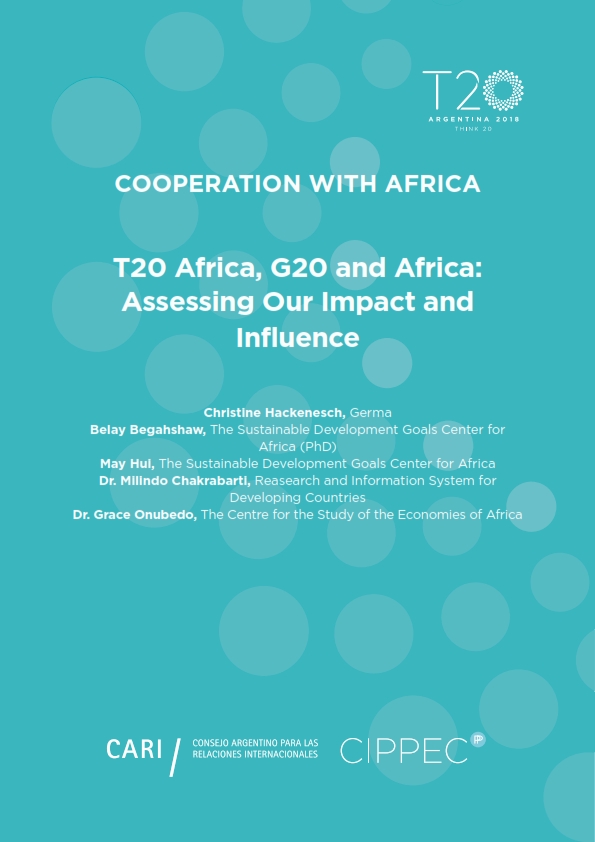As one of the key political and economic forums in the world, the G20 Summit was created to facilitate a stable and peaceful world through promoting several development agendas. Decisions taken by this forum help to support reform at the national and international levels. Since its creation in 2012, the T20 has comprised think tanks that aim at developing research and evidence-based briefs and recommendations to guide governments in policy development. The T20 Africa Standing Group established in 2017 should monitor the extent to which its policy recommendations on Africa-related issues have influenced and impacted policies and plans that emerge out of the G20.
Highlight

September 11, 2018
T20 Africa, G20 and Africa: Assessing Our Impact and Influence
As one of the key political and economic forums in the world, the G20 Summit was created to facilitate a stable and peaceful world through promoting several development agendas. Decisions taken by this forum help to support reform at the national and international levels. Since its creation in 2012, the T20 has comprised think tanks […]
Read →
Related
Nigeria Economic Update (Issue 29)
Global oil price edged upwards in the review week. International crude benchmark, Brent, rose week-on-week by 3.1 percent to $50 per barrel as at July 21, 20173 a level it had not attained since June. The remarkable gains followed demand-side progress earlier statistics from China showed increase in crude imports, indicating prospects of higher demand. This was also complimented by the huge drop in US domestic crude production (Crude reserves fell by 4.7 million barrels). If the trend is sustained, Nigeria could record further rise in its Gross Federally Collected Revenue. Nevertheless, there remains a need for Nigeria to overcome the challenge of harnessing its oil and gas resources by making strategic policy choices andensuring coordination in policy implementation to minimize macroeconomic distortions.
Nigeria Economic Update (Issue 39)
Nigerias
external reserve fell marginally by from $25.36 billion to $25.16 billion.
The decline likely reflects the continued sales of dollar by CBN amid fall in
oil revenue. Similarly, the naira/dollar exchange rate depreciated marginally
by 0.5 percent to N424/$ at the parallel segmentas also seen in
preceding weeks. The continued depreciation likely points to banks low level
compliance to CBNs dollar sales directive made in August, 2016,
thus creating artificial dollar scarcity in the parallel market.
